Women leading the changing face of union leadership
A new guard is sweeping away the male-dominated model associated with unions as women take charge – and juggle their own young families along the way.
Tasmania
Don't miss out on the headlines from Tasmania. Followed categories will be added to My News.
THEY are the new generation of union leaders.
Intelligent and savvy women working long hours every week in a pressure cooker environment, juggling their young families, to improve the lives of working Tasmanians.
When her third child Patrick was just eight days old, Unions Tasmania secretary JESSICA MUNDAY fronted a media conference and the next day attended her first four-hour board meeting.
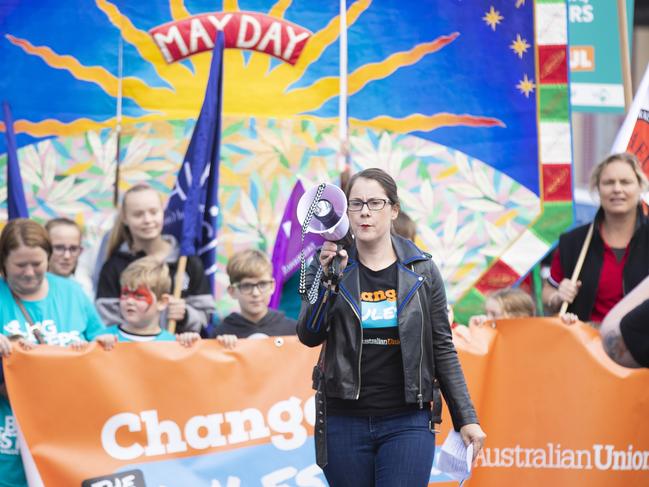
She concedes balancing children and the needs of 50,000 Tasmanian union members is challenging – but she wouldn’t have it any other way.
“I won’t lie, it’s hard, especially when they’re babies,” Ms Munday said
“It’s a busy job. I am lucky. I have options to work flexibly. That’s not the case for many other working women and why I’m so passionate about fighting for women’s equality at work.”
Ms Munday said working for a union was more than a job.
“It is a passion and a privilege,” she said.
“Working at the peak body for unions is absolutely mentally challenging, but I think that’s what makes it so rewarding.
“I need to have a good grasp of a broad range of industrial issues, as well as workplace safety, superannuation, and social justice issues like human rights, refugee rights, and climate change,” she said.
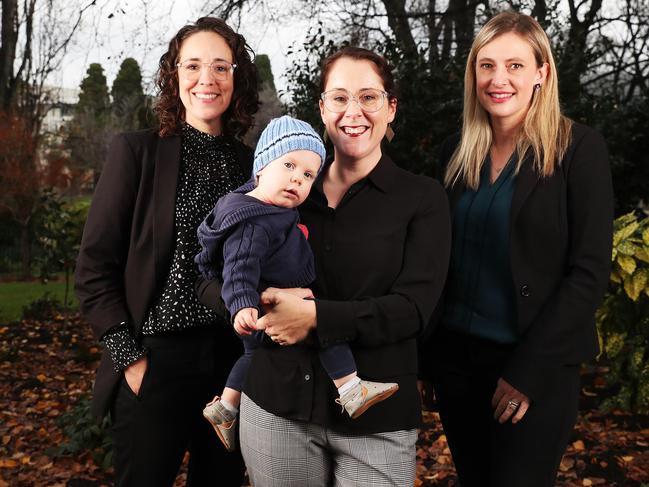
Women make up just over half of all union members.
Ms Munday hopes to make gains and build on those won by women “so the next generation don’t have it quite as hard”.
JANNETTE ARMSTRONG, has two sons aged seven and three and became a union activist to get fair pay, respect and recognition for early childhood educators.
She cut short her maternity leave when her firstborn was six months old to take on the job of state secretary of the United Workers Union.
“I really tried to make a point of bringing my babies into the boardroom and the office, and breaking taboos around breastfeeding,” she said.
“I want to keep making it normal for all union spaces and events to be child and family friendly.”
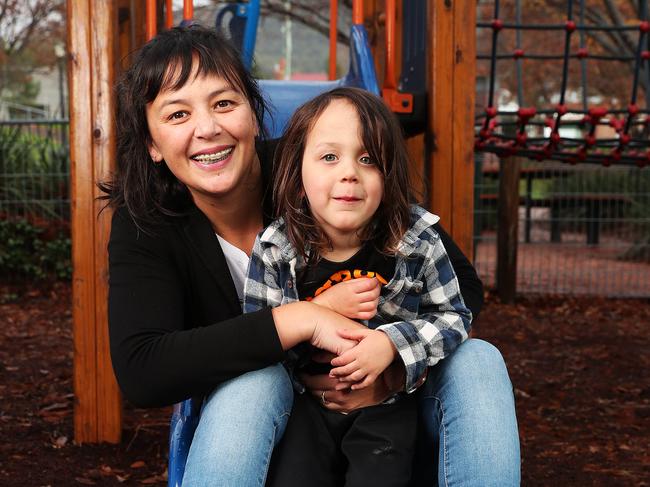
Ms Armstrong knows she is not alone in working long hours, but the frequent travel interstate takes its toll on family life.
“If I only work 40 hours – that’s a good week and probably not the norm,” she said.
“I would say every job in our union is pretty stressful – the emotional labour can be a heavy load and often we’re supporting workers in rotten, dire, and very vulnerable situations.
“In our union, many of the workers we’re organising with and representing are the most marginalised and underpaid in the country, so the stakes are pretty high.”
Ms Armstrong believes Covid-19 has led to greater acceptance of working from home.
“I still haven’t found a way to stop the working mum guilt though, she said.
“Just thinking about the things I miss with my children, and the things my children miss because of our work schedules, puts a lump in my throat.
“Working mums and dads are missing out on precious family time all the time, just to make ends meet in an increasingly unequal society.”
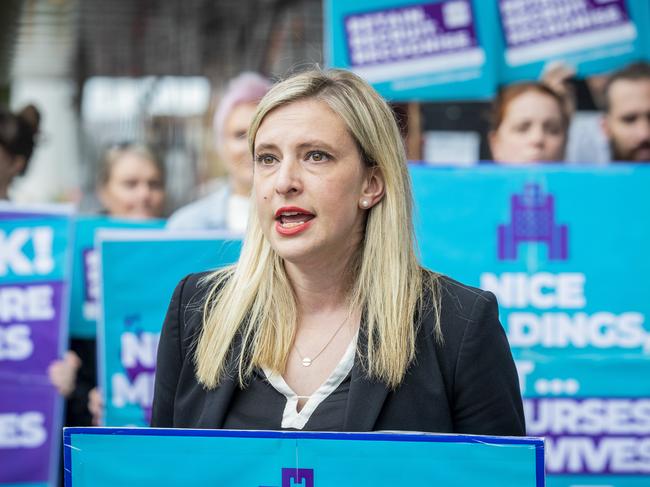
EMILY SHEPHERD’S foray into the union movement began when the hospital ward she was working on as a clinical nurse educator closed.
“I realised that it was only the ANMF (Australian Nursing and Midwifery Federation) that was fighting for the nurses on the ward at the time and I wanted to join the movement to stand up for what was right, for my colleagues, my patients and the nursing and midwifery professions,” she said.
The mother of daughters, aged two and five, Ms Shepherd has a master of clinical nursing and was president of the ANMF before becoming secretary.
“At times it is a very stressful job, because I feel the weight of the responsibility to do the absolute best for our members,” she said.
“I take that incredibly seriously and anything less than a good outcome I know will impact on members and I feel that they have enough to deal with.
“I am very lucky that ANMF is an incredible team. I couldn’t do what I do without the dedicated staff at ANMF who come to work every day to make a difference for our members and our next generation of nurses in our Health Education and Research Centre.”
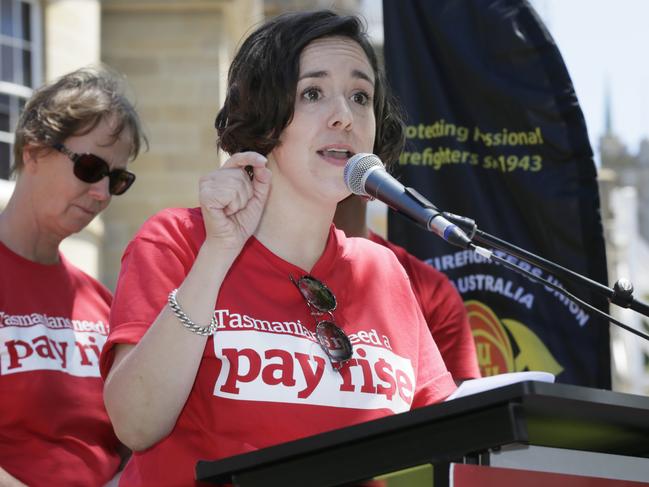
THIRZA WHITE has been in the union movement for 19 years and became active after seeing her father unemployed when the family migrated from Ireland.
“He eventually got a secure job, at a local council, but the experience unnerved him and for a long time after he worked six days a week, 11 hours a day missing a lot of family time,” Ms White said.
“I guess I learned then how important having a job and a sense of security was and the impact on a family when someone doesn’t have work or work isn’t working.”
The mother of three, aged from eight to three, says the hours working for the Community and Public Sector Union can be long and bleed into family time “but it’s not just a job” and she loves the challenges it throws up.
“One day you are standing with members taking collective action to improve services, arranging for members to meet a minister, the next you are supporting a member whose treatment at work is affecting their mental health and helping to make change to government policy,” she said.
“People in leadership positions should be honest about the fact these roles often come with flexibility that isn’t available to lots of workers.
“Whether you are in a union or not, the fact is that we make structural change to the way industries and our economy operate that help redistribute wealth and reduce inequality.”


